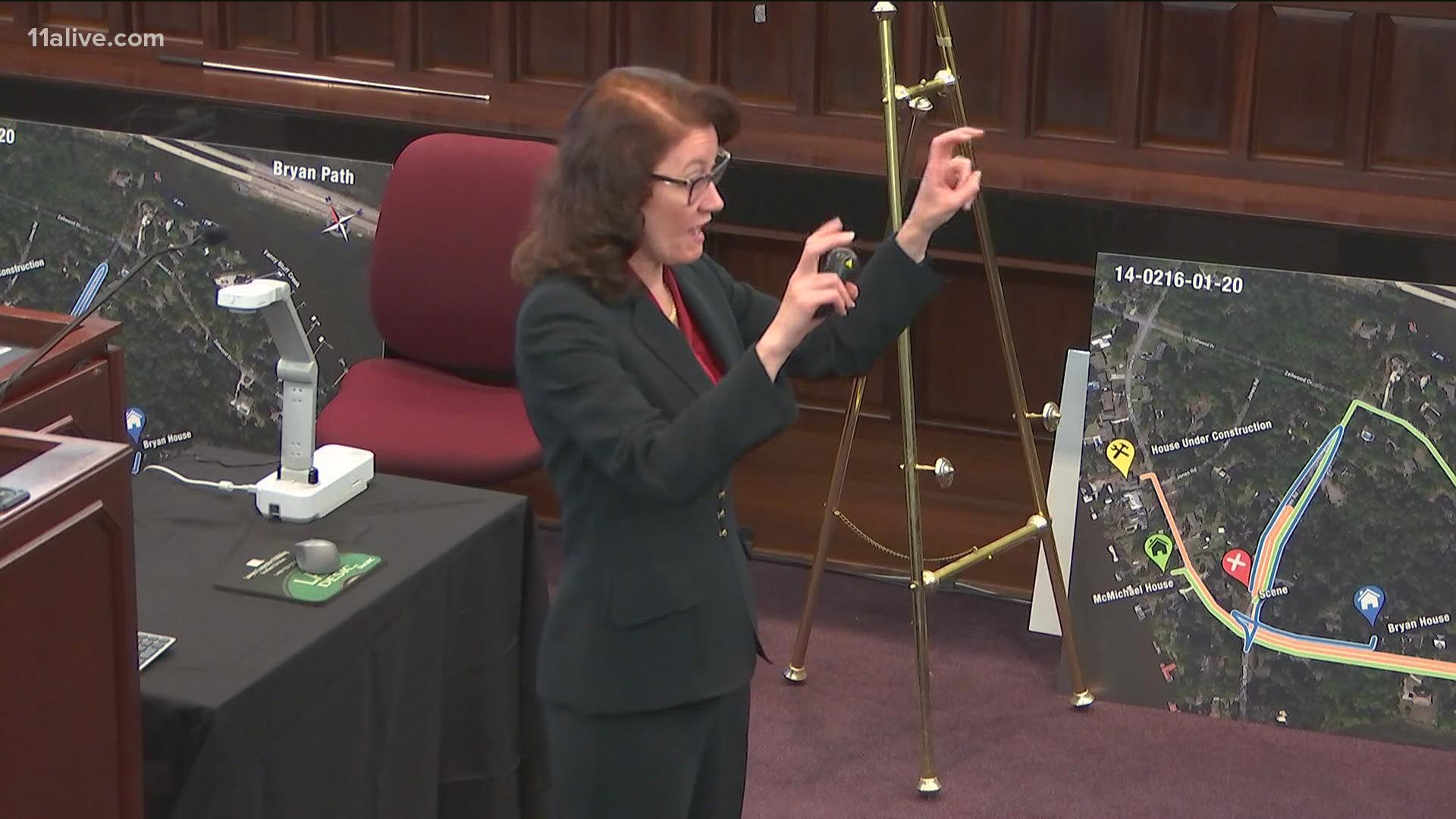GLYNN COUNTY, Ga. — As lawyers made their closing arguments to the jury in the trial of the death of Ahmaud Arbery, they had very particular - and different - ideas for how they wanted the jury to go about deciding the case.
The jury must consider 27 charges in total - the same nine for each of the three defendants, Greg and Travis McMichael and William "Roddie" Bryan.
They include malice murder, four counts of felony murder, two counts of aggravated assault, false imprisonment and criminal attempt to commit a felony.
RELATED: 'There's no fear here. There's only anger.' | Prosecutor makes final rebuttal in Ahmaud Arbery case
The jury, once it renders a unanimous verdict, will fill out a form that states their decision on each charge and deliver it to the court. To get there, though, the defense and prosecution want them to start from different places.
Prosecutor Linda Dunikoski wants them to consider the charges from the bottom - starting with the least serious, criminal attempt to commit a felony and false imprisonment, and working their way up.
"I'm going to make a suggestion to you," she said. "This may help you. Start at the bottom of the indictment. In your deliberations, start with criminal intent and false imprisonment. It's just easier. Just work through that one, work your way on up, then to felony murder, then to malice murder."
Defense attorneys wanted the opposite.
"I suggest that you begin at the beginning. Count 1, malice murder, and then take all the rest of those counts, 2 through 9, as one big chunk," attorney Laura Hogue said.
What's going on here?
Legal analyst Clint Rucker explained to 11Alive's Hope Ford that what the prosecution wants is for the jury to start with an easier hurdle to come to a guilty verdict, which would in turn make it easier to say "guilty" to the increasingly serious charges.
He compared it to a building: The State is trying to construct the "building" of a guilty verdict.
"You want to lay a good foundation and you want to build on that so those lesser included charges, once you accept them - then making the leap to the more serious charges is a lot easier," he said.
The defense, meanwhile, is trying to tear the "guilty" building down.
If the jury starts at malice murder and comes to the decision to acquit, in theory that starts a cascading effect to bring all the rest of the charges below it down.
That psychological element might not seem so obvious, but such is the art of lawyering.

